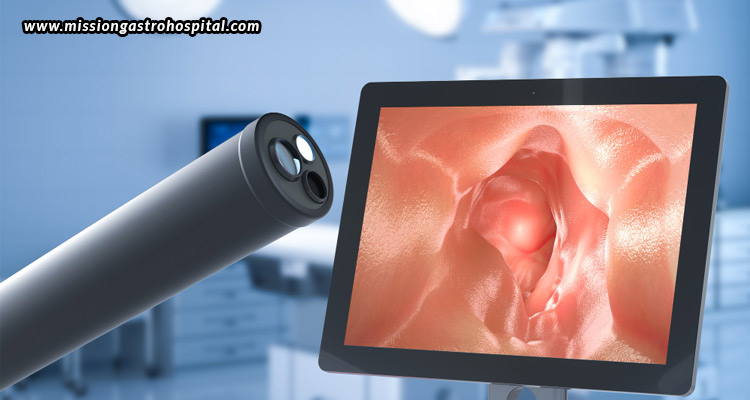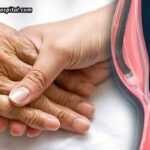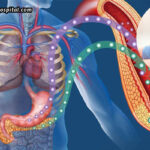Feeling nervous or uncertain about your first endoscopy? You’re not alone; most individuals would respond to the situation in a similar manner. Before the procedure, most individuals feel a little anxious or afraid, but fortunately, endoscopy is a common, safe, and quick procedure that gives your doctor additional information about your health. Although the procedure could seem daunting, keep in mind that its goal is to give you important information about your health and put you on the right track to feeling better. Your comfort will be the top priority for the medical staff, and if you prepare a little, the experience won’t be as scary as it might seem. Let’s break down the procedure so you’ll know exactly what to expect before, during, and after your endoscopy.
What is an endoscopy?
An endoscopy is a minimally invasive procedure, wherein your doctor will employ an endoscope – a long, flexible tube – to inspect the inside of your digestive tract. The endoscope has a light and a camera that project images onto a screen to assist the physician in identifying any anomalies, including growths, ulcers, and inflammation. This is particularly helpful in the diagnosis of conditions like chronic indigestion, acid reflux, and stomach pain. You may have a lower endoscopy (concentrating on the colon and rectum) or an upper endoscopy (checking the oesophagus, stomach, and upper small intestine) depending on your symptoms. Usually, these kinds of operations are quick, and take less than half an hour.
Why do you need an endoscopy?
Understanding the reasoning behind your doctor’s endoscopic recommendation should be one of your first priorities. Your anxiety will decrease if you have a better understanding of the procedure’s purpose. Endoscopies are frequently performed to look into symptoms like persistent pain in the abdomen, frequent acid reflux or heartburn, trouble swallowing, unexplained weight loss, and bleeding in the gastrointestinal tract. Finding the source of your symptoms is the main objective of an endoscopy. This process is essential to your doctor’s intention of making sure your digestive system is sound and operating normally.
Mental preparation
Being physically prepared for a medical procedure is crucial, but mental preparation is just as vital, particularly if you’re feeling nervous or anxious. It’s normal to be nervous, particularly if this is your first time, but you can relax by reminding yourself that endoscopies are common procedures that thousands of individuals get on a regular basis. Never be afraid to ask your doctor questions; being aware of the technical intricacies will help you feel less anxious. Consider the benefits; getting this surgery done is a step closer to getting your health problems resolved and raising your standard of living. When anxiety strikes, practicing breathing techniques like deep, steady breaths can help soothe your mind.
Physical preparation
It’s critical to adhere to dietary recommendations in the days preceding your endoscopy in order to guarantee a smooth procedure. A well-prepared digestive system aids your physician in obtaining clear photos throughout the examination. You’ll usually be instructed to adhere to a clear liquid diet for the 24 hours prior to the procedure, which entails avoiding solid foods and only consuming clear liquids like broth, water, and clear juices. Steer clear of red or purple beverages as they may resemble blood during the procedure. To guarantee that your stomach is empty for your endoscopy, you must also fast entirely for eight to twelve hours before to the procedure. This includes not eating or drinking anything, even water. See your doctor to modify your routine if you take medication or have diabetes. Consult your doctor about your medications in advance, since there may be a need to temporarily stop taking aspirin or blood thinners owing to an elevated risk of bleeding. Before your treatment, your doctor will advise you on how to take necessary drugs, like those for high blood pressure or diabetes.
On the day of the endoscopy
You’ll feel a little peckish on the day of the procedure since you’ve been fasting, but it will go by quickly, and you’ll be able to get back to your regular activities soon. When you arrive, a nurse will take your vital signs and you’ll be shown to a preparation room where you’ll check in and maybe asked to change into a hospital gown. You may be given a small sedative to help you relax during your endoscopy. Since most endoscopies are done under conscious sedation, you’ll likely wake up feeling extremely comfortable and with limited memory of the surgery. To ensure your comfort, you can talk to your doctor in advance about sedative choices. Once you’re unconscious, the endoscopist will start the procedure by carefully inserting the endoscope through your mouth (for an upper endoscopy) or your rectum (for a colonoscopy). The entire procedure typically takes about fifteen to thirty minutes.
After the endoscopy
You’ll be brought to a recovery room after the procedure so you may relax while the sedative wears off. Most individuals report feeling comfortable yet drowsy, and medical personnel will keep an eye on you to make sure nothing is out of the ordinary. Some symptoms, such as sore throats or bloating, may cause you some minor discomfort, but these usually go away in a few hours. Your doctor will let you have light meals after you awaken. You’ll start with liquids and soft foods and work your way back to your normal diet. If biopsies were done, complete results might not be available for days. However, preliminary results might be given right away. Your doctor will schedule a follow-up appointment to discuss the findings in detail.
Even though the thought of an endoscopy may seem unsettling at first, if you follow these instructions and concentrate on the advantages, you’ll discover that the procedure is tolerable and eventually helpful. This technique is a vital tool in the journey of your health, whether it’s about ruling out dangerous illnesses or finding a solution to inexplicable symptoms. Prepare yourself both mentally and physically, and never forget that your medical staff is there to help you at every step of the way. Mission Gastro Hospital is renowned for having the best endoscopy doctor in Ahmedabad, offering expert care and advanced techniques to ensure accurate diagnoses and patient comfort. The dedicated team here is committed to guiding you through each step of the endoscopy procedure with professionalism and compassion.








